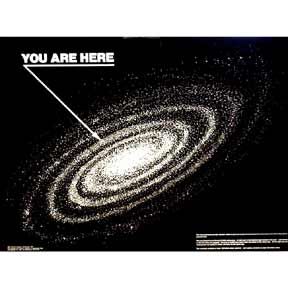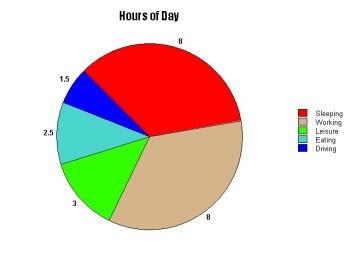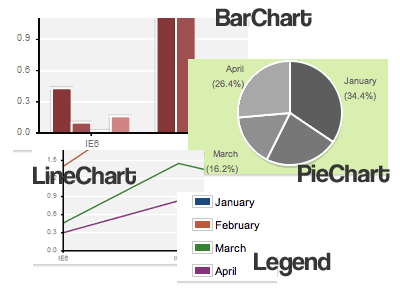
The arrogance of man is no where more apparent than in the works of atheism. We have noticed over the last few years atheism has gotten stupider as it has grown more arrogant. Nowhere is this more than in the many tendencies to treat God as a big man in the sky and try to subject him to scintific analysis. This is a move that most thinkers of the century would have laughed themselves silly over. Anyone with half a brain wold have said "don't thse idiots know what all of us know as elementary, you can't second guess the nature of the divine by insisting that God operates under rules like a biological organism? Dawkins is a major pervayer of this garbage but Victor Stinger is even more so. Stinger, in his God the Failed Hypothesis, is the genius who stated the "who created God" thing, one of the hallmarks of atheist ignorance.
The method is super simple. Stenger does mess with trying t probe the heavens or reaching beyond our tiny little expousre to the world on this dust mote, he does it the "obvious way" by creating a straw man argument for God then knocking it down.
Simply Einstein
Reviews: Stenger's God, The
Failed Hypothesis.
^ "Conspicuous by His Absence". Skeptic. April 4, 2007. http://www.skeptic.com/eskeptic/07-04-04.html. Retrieved 2007-10-17.
says Victor Stenger in "God: The Failed Hypothesis." The book is subtitled, "How science shows that God does not exist." Chapter by chapter, the author shows that the existence of God would suggest certain realities in the world that would be verifiable by scientific inquiry. But the data don't support these would-be realities, thereby providing evidence that no God exists.Stenger, retired professor of Philosophy at University of Colorado and of Physics and Astronomy at University of Hawaii, is successful in this line of reasoning because of his clearly stated definition that he is not just talking about any kind of god, but specifically the capital-g God of the Judeo-Christian-Islamic tradition.
"Stenger lays out the evidence from cosmology, particle physics and quantum mechanics showing that the universe appears exactly as it should if there is no creator."
How does he reckon it should if there is no God? He constructs his own fundamentalist driven version of what God would e like. Of course he has no knowledge of that. It's really a disproof of the atheist big nightmare of the fundie God not a real disprove of anything valid.
Beyond that, which is a deal braker--becasue how you set up the iquiery in the first place determines everything-- there are other criticisms. For example his take on the issue of prayer studies. This is also proof of the "fortress of facts" concept which I am always pointing out that atheist ideology teaches. No atheist has of yet accepted the notion when I point it but it's clear that they argue from it all the time. The idea scinece gives them a big pile of facts but we believers have no facts.
Simply ibid
For instance, he tackles the question of the efficacy of prayer, in which the followers of these faiths fervently believe. If God exists, he argues, prayers could be shown to have been answered, using verifiable, replicable studies. And indeed, such studies have been conducted, with universally negative results. (Some studies, which supposedly yielded positive results, used flawed methodology and thus the conclusion is dismissible.) "If prayer were as important as it is taken to be by Jews, Christians and Muslims, its positive effects should be obvious and measurable," Stenger concludes. "They are not. It does not appear - based on the scientific evidence - that a God exists who answers prayers in any significant, observable way."The idea that the other 14 studies that found prayer works* had "methodological flaws" but we don't say what they are, is really crucial. The real issue is the one thing that dogged those other studies which otherwise were fine was the issue of control for outside prayer. Think about it, you have two groups one is prayerd for and one is not. If the prayed for group does better that's an indication that prayer works. The problem is the people in the control group (the one's not prayed for) know people in life. The people they know might well be praying for them. The people not in the study could easily say to themselves "well old Fred needs help, he said not pray for him but he's just not a believer I'll pray anyway." Or some people pray for "everyone in the hospital" and so on. There's no way to control for outside prayer.
The irony is back in the day (the 90s) when the other studies (Byrd, Harris, Targ) were going around the atheist were arguing "you can't control for outside prayer." That was the atheist argument. The new studies were attempts to control for outside prayer. The problem is there is no way to prove that it worked. Now taht those studies show prayer didn't have an effect the atheists argue "you can certainly contorl for otuside pryer." Now I came to the conclusion that you can't. When the next study shows that prayer works they atheist will switch again, maybe i will too. The truth is just think about it, how could one ever eally control for outside prayer? What about mystics and great spiritual people who pray for everyone in the world. Billy Graham once said that every morning he prayed for everyone in the world. How could one ever be certain that the control group was selaed off form that prayer?
The assumptions that Stenger has to make to make his straw man work is that God is exactly as he wants him to be. The reviewer at Simply Einstein (ibid) defends him against the charge of straw man.
The logical purist may object that one can't "prove a negative," that one can no more disprove God than disprove the existence of Santa Claus or an invisible unicorn in the backyard. But the fact that most people do believe in God while rejecting the latter two is part of the point. Given no real reason to believe in Santa Claus or invisible unicorns, people reject such beliefs. Yet they hold tenaciously not only to belief in their God, but specifically to the tenets that their religion teaches about him. It is really these tenets that Stenger is addressing. By showing that they are wrong, like the efficacy of prayer or the notion that God fine-tuned the universe specifically for the sake of existence of humanity, the author demonstrates that belief in God is equally unfounded.Yet this is not much of a defense. The so called "tenets" are self selected to be one's he picks out that he thinks he can beat. No religious creed or Bible passage commands us to believe on the basis of the fine tuning argument. No scientific argument can disprove the notion that God has fine tuned the universe to bear life. The only thing science can prove about fine tuning is that we can't prove it. On the other far greater scientists than Stenger say his arguments agaisnt fine tuning are not so good. The person answering mail for John Polkinghorne (formerly physicist at Cambridge second only to Hawking, who retired to be a Christian minister) says:
Stinger did some marginally useful scientific work but his claims are far too dogmatic. As for his suggestion that Anthropic Fine tuning is a non-problem because of his simplistic program MonkeyGod that purports to simulate universes and “show” that anthropic universes are commonplace, I know of no serious cosmologist who takes this seriously. Martin Rees’s “Just Six Numbers” is a good guide to the real science.
Polkinghorne himself says: I have read several of the books expressing the current outburst of militant atheism, but not the two you mention. My impression is that they are polemical rather than presenting reasoned arguments of a truth-seeking kind, and that they largely depend upon attacking caricature distortions of religious belief.Others find the straw man to be Stenger's usual method, such as David Sharf, received his Ph.D. in 1986 from Johns Hopkins University, in the philosophy of physics. The title of his dissertation was: Quantum Mechanics and the Program for the Unity of Science:
Stenger—a retired physicist who is leveraging his scientific background to try to discredit anything and everything that smacks of spirituality—doesn’t respect his intellectual opponents enough to get their positions right; in some instances he appears to deliberately misrepresent their views; and, most important, his own reasoning is characterized by unremitting carelessness. Moreover, there is a method to his carelessness—it enables him to systematically avoid addressing the tough arguments of his opponents. Hence we find him frequently setting up a straw man by misrepresenting the debate as a simple matter of science and reason versus superstition. Once having defined this as the issue, all he needs to do is assume the attitude of an outraged scientist and heap on the ridicule. But if he had done his homework and taken the trouble to really understand the science and logic supporting quantum spirituality, he would have discovered that it is harder to dismiss than he had imagined. Indeed, the more carefully—and yes, critically—one considers the issues, the more one finds quantum spirituality toStenger doesn't deal with what I consider to be the major God arguments, the ground of being stuff of Tillich and Schleiermacher. Like most of the cult of atheism he's in thrall to his own version of science which is laced with metaphysics. Like most of them they think they are being scientific and philosophical when they denounce philosophy and theology and talk about how scinece is the only form of knowledge, then they are bringing ontology in through the back door to put fiber into their world view. Stenger's straw man making is standard procedure for the new atheist. They are always spitting out some line with a dashing air of how theology is stupid so they don't have to read it. They know it's stupid even though they haven't read any. The whole point of showing they haven't read is usually becuase they are getting the ideas wrong but they never seem to care.
be eminently worthy of serious consideration, as a plausible and measured approach to the most long-standing and intractable questions at the basis of science.




 See
See 